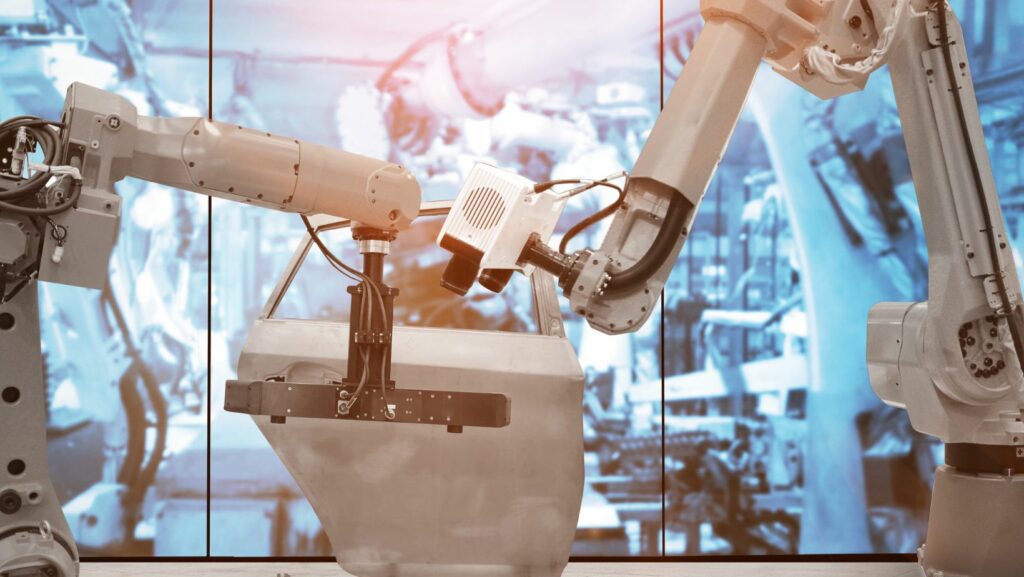In the fast-paced world of automobiles, technology is the driving force, including innovations like QR codes for quick vehicle information access. It’s what keeps the industry evolving, making our cars safer, more efficient, and even more enjoyable to drive. This is where an automotive technology program comes into play, providing the necessary training and knowledge to keep up with this dynamic field.
Buckle up as we delve into the world of automotive technology programs and explore how they’re paving the way for tomorrow’s automotive professionals.
Overview of Automotive Technology Programs

Undeniably, automotive technology education serves more than just imparting the knowledge to juggle tools and components. Primarily, it equips participants with the capacity to comprehend rapidly evolving car technologies, enhancing their adaptability in this swift-paced industry. Moreover, it’s an arena to acquire a profound understanding of vehicle diagnostics, repairs, and maintenance, fostering a proactive approach to deliver solutions even under demanding circumstances. The automotive technology program plays a pivotal role as well, in establishing a sturdy foundation of theories and practical applications – an invaluable asset that can spike one’s career trajectory in the automotive field.
Furthermore, curriculum offers room for honing critical thinking and problem-solving skills, ensuring that graduates are well-prepped to tackle challenges that come their way in the field. Consequently, the automotive technology program is characterized not just by technical prowess, but also attributes that enhance professional competence and adaptability.
Automotive Technology Program
Autonomous technology programs pave the way to a multitude of lucrative career paths encompassing various roles and positions within the industry.
Roles and Positions Available

Engaging in an automotive technology program opens doors to a range of roles. Graduates stand the chance of securing employment as:
- Automotive Technicians, who diagnose and repair automotive mechanical and aesthetic issues.
- Service Consultants, offering guidance and advice on vehicle maintenance and repairs.
- Parts Specialists, managing spare parts inventory and facilitating the acquisition of necessary components.
- Fleet Managers, overseeing and managing the organization’s vehicle fleet.
- Performance Tuners, optimizing the performance and efficiency of vehicles.
Each of these roles comes with its own set of responsibilities and contributes significantly to the overall automotive industry.
Industry Demand and Growth

The automotive technology industry is constantly evolving, driven by technological advancements and consumer demand for more efficient, safer vehicles. According to the U.S. Bureau of Labor Statistics, employment for automotive service technicians and mechanics is projected to grow at a rate of around 4% from 2019 to 2029. This expectation of growth indicates a steady demand for professionals with a background in automotive technology programs.
Skills Learned in an Automotive Nikola Technology Program
An automotive technology program imparts a wide range of vital skills necessary for excelling in the fast-paced automotive industry. The skills span technical expertise, soft skills, and extensive knowledge of rapidly evolving automotive technologies.
Technical Skills and Knowledge
Acquiring profound technical expertise forms the backbone of any automotive technology program. Participants gain intricate knowledge of various automobile systems including, but not limited to, the engine, cooling, fuel, exhaust, suspension, and brake systems. They develop efficiency in using advanced diagnostic tools, performing vehicle inspections, and executing preventive maintenance tasks.
Soft Skills Development
Beyond technical acumen, an automotive technology program fosters crucial soft skills, pivotal in building successful careers. Effective communication techniques come into play, to articulate complex technical concepts to customers and team members in a comprehensible way. Problem-solving skills, a prized asset in the automotive industry, is honed, where budding technicians tackle intricate mechanical issues and devise innovative solutions. Teamwork forms a key component, as complex automotive repair and diagnostics often require a collective effort.
Choosing a program with proper accreditation and forward-thinking curriculum is key. It’s essential to find a program that not only meets industry standards but also integrates emerging technologies like autonomous driving and electric vehicles. Ultimately, the right automotive technology program can pave the way for a rewarding career, equipping students with the skills to drive the future of the automotive industry.



